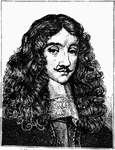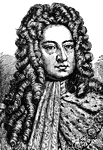Clipart tagged: ‘king of england scotland ireland great britain’

Charles II of England
Charles II (Charles Stuart; 29 May 1630 – 6 February 1685) was the King of England, Scotland,…

King George I of Great Britain
George I (28 May 1660 – 11 June 1727) was King of Great Britain and Ireland from 1 August 1714…